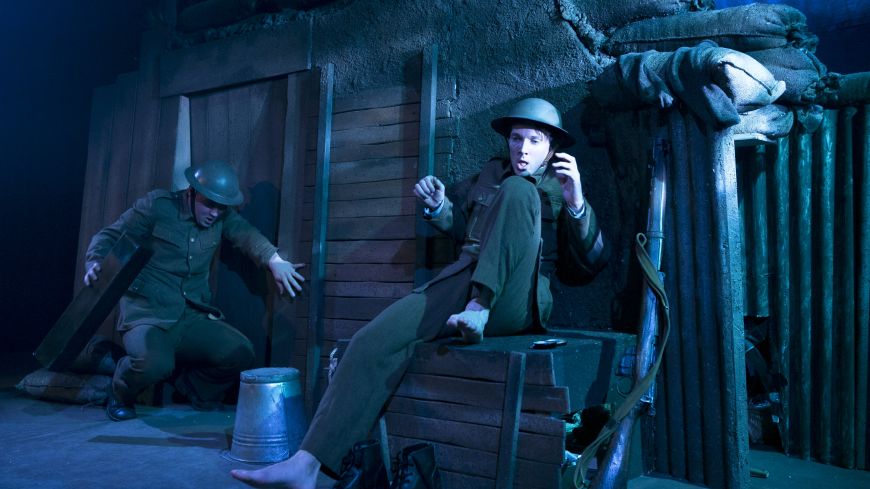
The world has only been at peace for about 8% of its recorded history. For most of us living in Britain today war is often seen as something remote, something that happens on the news to other people in other countries, or belongs to other eras, remembered only at specific times, on specific days. At most, war is a distant, rumbling, background noise that can be ignored or quickly forgotten, both omnipresent and strangely absent.
The Man Who Followed His Legs (And Kept On Walking) from Scotland’s master storytellers Wee Stories, is aimed at people aged 10 years and older and does something remarkable to the fuzzy concept of ‘war’ , making it real and personal for those born in this new millennium and teaching us older ones a thing or two along the way. Wee Stories’ productions have a knack of opening doors to other worlds, hiding necessary and important information in beautiful narratives that leave you less ignorant, more curious and connected, and feeling all the better for it.
Told as always with minimum fuss and maximum impact, four actors and a few puppets take us on a journey from Edinburgh in 1914 to France 1916. The focus of the story is two teenage lads who follow 13 players from their beloved Hearts football team into battle, inspired by the rallying cry of George McCrae and shamed by the ‘White Feathers of Midlothian’ mud that had been flung their way and was threatening to stick. They had no idea that they would spend the next couple of years stuck knee-deep in the stuff.
The naivety of the boys and the total lack of any realistic strategy from their leaders in the face of a massive, well-armed and tightly-organised enemy at close range, really hits home. The play darts between the happy days of banter back in Edinburgh and the slow realisation that Britain is at war, to the trenches in France and the fear and reality of staring death in the face.
This all sounds rather stark, but the warmth and humour found in the relationships that develop between the characters (birds and animals included) lifts the spirits and as the narrative progresses, a way of healing a shell-shocked soul is glimpsed. The note of laughter that the play ends on is both welcome and absolutely appropriate.
Plays Brunton Theatre, 3rd November, on tour.

